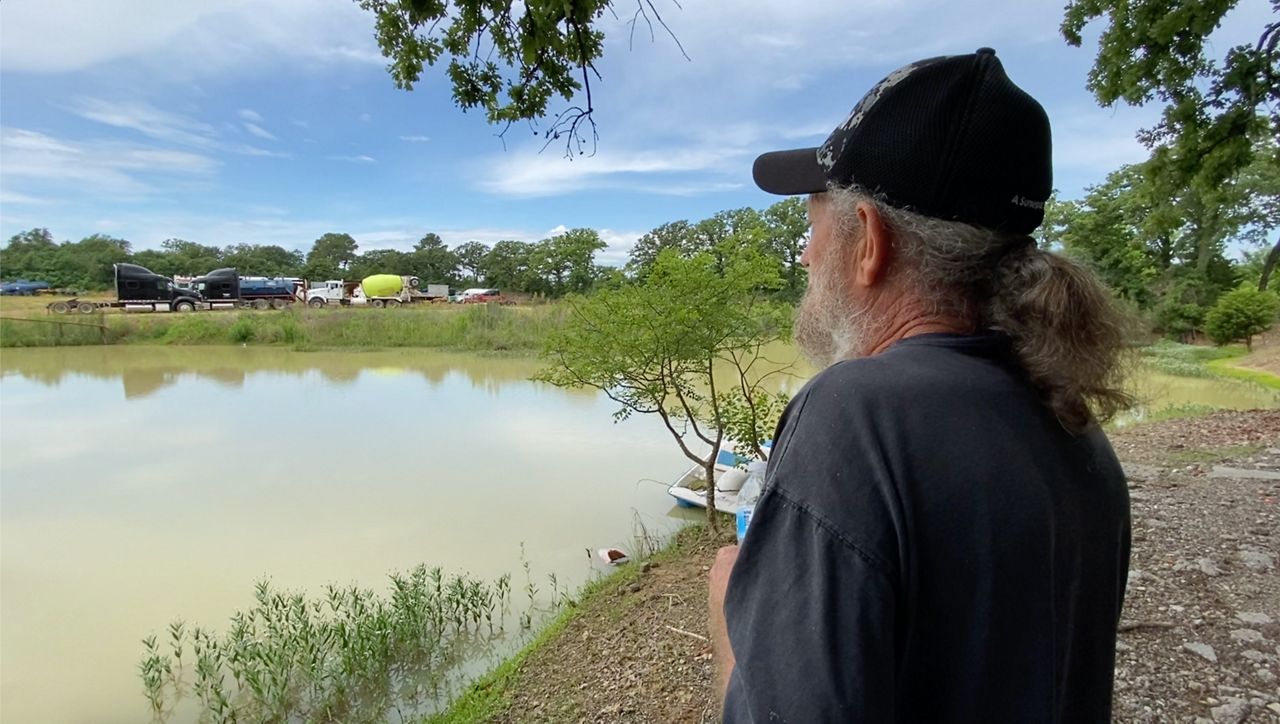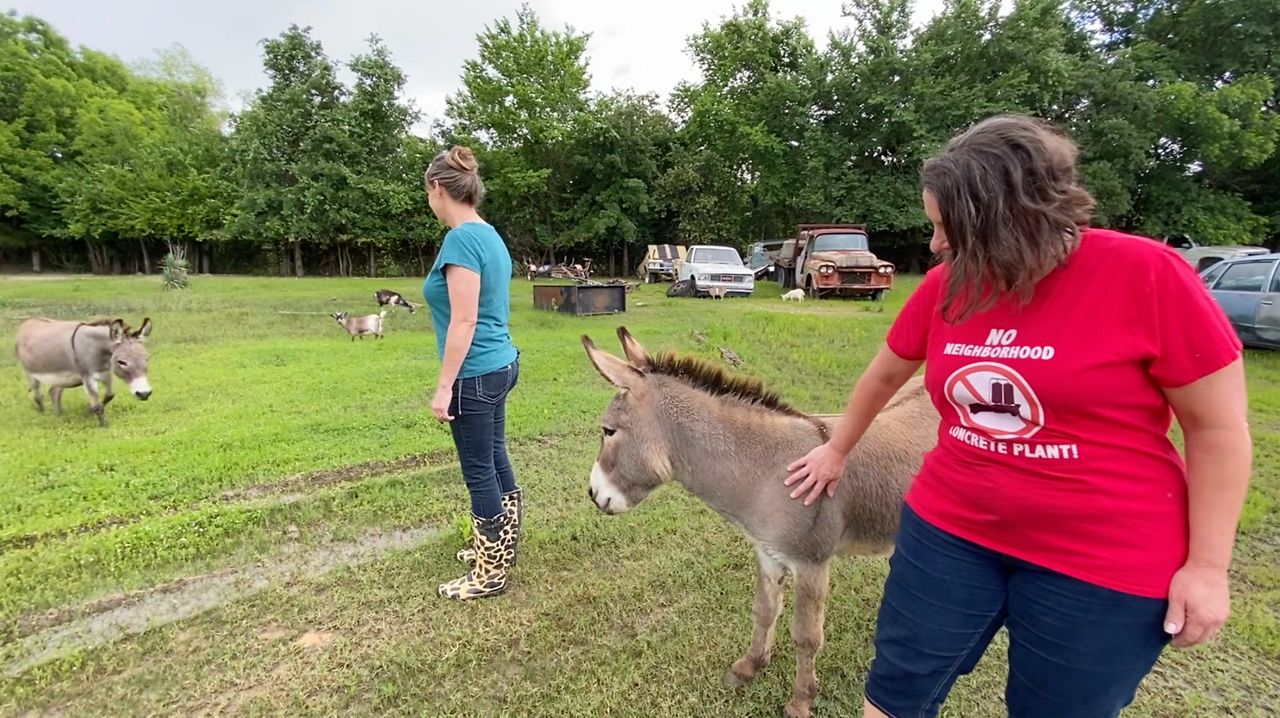MANSFIELD, Texas — A group of neighbors in Mansfield, Texas, spent over $150,000 in legal representation to try to stop a permit from being granted to a concrete batch plant that was seeking to operate in their neighborhood.
Bosque Solutions was denied the permit by the Texas Commission on Environmental Quality on Wednesday June 9, 2020. The decision was made after the neighbors said they spent three years protesting and petitioning the Texas Commission on Environmental Quality to stop the Bosque Solutions concrete batch plant from going up in their neighborhood.
“It’s beautiful out here. We live in the country. It's a residential neighborhood that has been established for many, many years,” said Chuck Crook about the neighborhood.
Crook said keeping his neighborhood and lifestyle the way it has been for decades depended on the denial of the permit, and he was very worried it would not happen.
“It will destroy our property values. I won’t wanna be out here if we’re gonna be listening to concrete trucks 24 hours a day. We’re gonna have sand and all this dust and it's gonna be tearing up our roads. It’s gonna destroy this lifestyle that we have out here,” he added.
That’s the reason the neighbors from Gibson Cemetery Road in Mansfield got together when they first found out about the plant in 2018.
"Once we found out about that, we started organizing ourselves to see what we could do to stop that,” added Crook.
Bosque Solutions president John Sheffield denied an interview regarding the case, but gave Spectrum News 1 Texas the following verbal statement over the phone on May 25, 2021:
“Bosque Solutions will abide and operate by T-C-E-Q regulations moving forward,” assured Sheffield.
However, the Gibson Cemetery Road families wanted him to completely stop trying to set up shop in their neighborhood. Seven of the families opposing the plant lived within 440 yards of the location of the plant. One of those residents is Larre Earl Smitherman Sr., whose home is located right next to the site where Bosque Solutions wanted to establish the plant.
“I can’t be out here because of the dust, with COPD. See, I’m getting out of breath now just walking out here,” said Smitherman.

Smitherman Sr. suffers from Chronic Obstructive Pulmonary Disease (COPD) and depends on an inhaler to breathe. His physician advised him that any increase in dust, dirt or allergens created by the plant would be detrimental to his health. The senior spends a lot of his time outdoors in his backyard pond fishing and feeding his animals. The plant would have forced him to remain completely indoors or to be connected to oxygen at all times if he stepped outside. So he pleaded his neighbor next door to cancel his plans for the sake of residents like him.
“We can still be good neighbors. Stop the concrete plant, that’s all we ask...the neighbors right here next to you, that’s all they ask,” said Smitherman during the interview with Spectrum News 1 Texas a week before the final decision by the TCEQ was made.
His neighbor Vicki Polson lives in front of the site where the plant would operate and was concerned that her health would suffer as well.
“It doesn’t seem that the TCEQ is considering our health. Why should someone's business making money be at the expense of my health and all of the health of our neighborhood?” said Polson.

Polson was one of the organizers of the Stop the Bosque Solutions Concrete Plant group. She said making sure the plant did not get the permit to protect their livelihood was a really difficult and expensive journey.
“It’s just sad that we’re having to come up with near $150,000 just to stay the same way that we are,” she said.
Now that the permit has been denied, the group of neighbors is relieved, but says it is not letting its guard down in case there are any appeals. The neighbors hope their story helps other Texans who might also face the same problem now or in the future. Their goal is that there will be a permanent solution that will not allow industrial-type complexes to settle into residential neighborhoods statewide.



